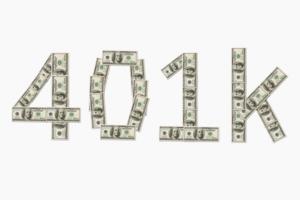Consumer
/Home & Leisure

The reluctant investor's guide to smart, low-effort investing
A calf taught Laura Kuntz the power of investing.
Growing up on a Wisconsin dairy farm, she and her eight siblings each received a heifer when they reached sixth grade. They’d work to reimburse their parents for the price of the animal and to cover costs like lodging and feed, then build up savings from the milk revenue.
“The idea was that...Read more

What are the different types of index funds?
Index funds are one of the most popular types of investments because of their simplicity, low cost and diversification benefits. In general, index funds seek to replicate the performance of an underlying index comprised of stocks or bonds, which means they aren’t managed by costly portfolio managers with teams of analysts.
There are various ...Read more

12 ways to save money every day
Key takeaways
— One of the easiest ways to save money daily is to cut unnecessary expenses, such as unused subscriptions.
— Save money by joining loyalty programs at stores you visit often and using cashback credit cards to earn rewards on your spending.
— Set up automatic bill payments to avoid late fees and switch to a fee-free bank ...Read more

10 apps that will help you save money on food
Food costs represent a significant portion of household budgets, and rising grocery prices make strategic shopping essential. While cutting back isn’t the only solution, smartphone apps can provide substantial grocery savings through cash-back rewards, digital coupons, discounts and loyalty programs.
Here’s a comprehensive guide to 10 ...Read more

'Middle class' feels more confusing than ever. Here's how you can avoid being caught in the middle
Marcos Cabello, a writer at Bankrate, makes around $170,000 a year when combining finances with his fiancee. Unfortunately, that doesn’t go as far as he’d like in pricey Boston.
Cabello and his fiancee consider themselves middle class, but in a city where homes are typically over $1 million, traditional middle-class benchmarks, like ...Read more

12 simple ways to make $100 fast
Whether you’re looking to pay down debt, cover an unexpected expense or just add a little cushion to your bank account, there are numerous ways to make $100 fast. From leveraging your skills to utilizing apps and services, these methods can help you achieve that goal without a major time commitment.
Here are 12 practical ways to earn that ...Read more
Real estate Q&A: Why do I need two types of title insurance?
Q: We are buying our first home and are stretching our savings to pay for the down payment and closing costs, not to mention the moving expenses. Our lender sent us our closing cost estimate, which showed that “owner's title insurance” was optional, even though we were required to purchase “lender's title insurance.” What is the ...Read more

A complete guide to 401(k) retirement plans: What is a 401(k)?
If you’re working and already saving for retirement or plan to start socking away money soon, investing in a 401(k) plan can help you build a sizable nest egg.
If you’re thinking about signing up for a 401(k), or simply want to know more about how to take full advantage of this type of retirement savings vehicle, here’s everything you ...Read more

If you lost your home or business in the wildfires, here's what to do next
With more than 1,100 structures already destroyed by three wildfires that continue to rage out of control around Los Angeles, homeowners and business owners face a long road ahead to recoup their losses.
Filing an insurance claim is one of the many tasks to take care of after the loss of a home or business. It is lengthy process that has become...Read more

Keep yourself and your money safe from these four scams
The holiday season often includes gift-giving to loved ones and charitable causes, but authorities say the threat of scammers seeking to trick victims into giving them large sums of money and personal information persists year-round.
Here are some common scams and how to protect yourself from them:
'Pig butchering'
“Pig butchering” refers...Read more

Before and after: A California garage is now a serene Kyoto-style ADU
Elizabeth Altounian’s South Pasadena accessory dwelling unit is more than just a living space. It’s a manifestation of beauty, wonder and spirituality, all intertwined. This 400-square-foot former garage, adorned with traditional Japanese shoji screens, a platform bed with a tatami mat and a covered engawa porch running along the entrance of...Read more

Home insurance costs in Florida spiked in third quarter. Are more increases on the way?
Those stabilized home insurance costs that industry leaders and state insurance regulators touted over most of 2024?
It looks like premiums might be heading up again.
That’s what a South Florida Sun Sentinel analysis of insurance market share data from the third quarter of 2024 shows.
The statewide average premium paid for an all-perils ...Read more

6 best investments for beginners
The idea of investing can be intimidating if you’re just starting out, but it’s an important part of saving for various financial goals and building wealth. You’ll encounter many different market environments throughout your investing life, so don’t get too caught up in whether now is the perfect time to get started.
But before making ...Read more

Should you actively trade in a Roth IRA?
A Roth IRA is considered by many financial experts to be the best retirement plan out there. Workers can invest money on an after-tax basis and then withdraw their funds in retirement (after age 59 1/2) tax-free. They can enjoy decades of compounding growth and never owe the taxman a cent as long as they follow the plan’s rules. No wonder it�...Read more

Liberty Mutual canceled this Southern California homeowner's policy. Now she's suing
A Southern California homeowner is suing Liberty Mutual Insurance Co. for canceling her longstanding insurance policy, accusing the company of dropping her for bogus reasons.
In the proposed class-action lawsuit, Maria Badin said she had been a Liberty Mutual customer since 1993, when she bought her home in Poway. She alleged that in late ...Read more

Bill Cosby defaults on $17.5 million mortgage, faces foreclosure for a second NYC townhouse
Bill Cosby, the disgraced comedian who has been accused of sexual assault by dozens of women, now has two Manhattan townhouses facing foreclosure.
Cosby, 87, allegedly defaulted on a mortgage for his 12,000-square-foot Upper East Side house after not making payments since June, according to court records. The complaint, filed in New York County...Read more
Real estate Q&A: Guidelines to dealing with problems
As 2025 begins, it looks like it will be another interesting year in real estate.
While it is difficult to predict the ebbs and flows of the market, I can say with certainty that some of you will have a problem concerning your home. Every problem is unique, but after decades of legal practice, I have developed some general guidelines to help ...Read more

First-time home buyers 'struggle to find opportunities.' San Diego home price gains rank No. 7 in US
SAN DIEGO — San Diego home price gains have slowed compared to remarkable highs over the past few years.
In October, the San Diego metropolitan area’s home price increased 4.5% annually, said the S&P Case-Shiller Indices report released Tuesday. The highest gains in the 20-city index were in the New York metro area, at 7.27%, and Chicago, ...Read more

Developers making millions from 'affordable housing' program lobbied California lawmakers to shut down regulation
Developers who have reaped millions of dollars from an affordable housing program for middle-income renters with sometimes little-to-no discounts from market rents have spent hundreds of thousands on lobbying and campaign donations in recent years in a bid to keep lawmakers from imposing regulations.
The expenditures represent a fraction of the...Read more

Las Vegas catching up on room losses with Tropicana, Mirage closures
Southern Nevada lost more than 4,500 hotel rooms in 2024 when the Tropicana and Mirage closed their doors and the region won’t fully bounce back from those losses until the Hard Rock Las Vegas opens its doors in 2027, the Las Vegas Convention and Visitors Authority said.
The Tropicana closed in April with its two towers imploded in October to...Read more






